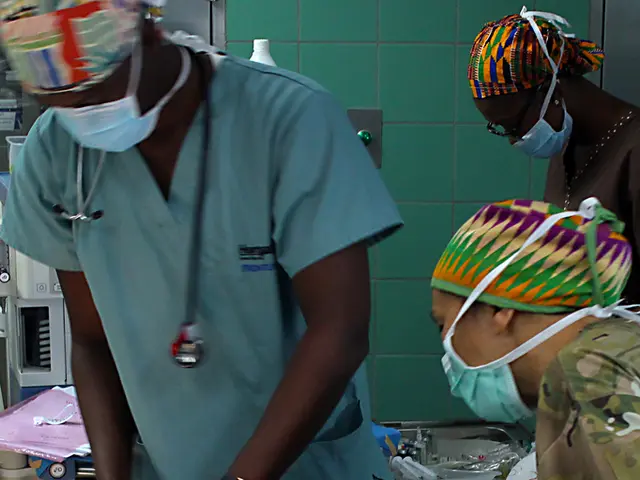Unraveling the Tragedy: The Germanwings Crash and its Impact on Aviation Safety
Aviation sector's hard-earned lessons from the tragic Germanwings incident
Social media outlets buzzed in the aftermath of the 2015 Germanwings crash, an event that sent shockwaves through the aviation industry. The disaster led to a critical review of safety regulations, particularly focusing on the mental health of pilots, with experts now predicting a drastic decrease in the likelihood of such an incident occurring again.
The culprit, Andreas Lubitz, was a 27-year-old co-pilot who, on March 24, 2015, locked the captain out of the cockpit, deliberately crashed the Airbus jet into the French Alps, taking the lives of 149 innocent passengers. Investigations carried out by French and German authorities left no doubt about Lubitz's guilt, but the question remained: How did Lubitz, battling severe psychological issues, manage to work for Lufthansa subsidiary, Germanwings?
A Tale of Neglected Warning Signs
Looking back, Lubitz's psychological turmoil was evident. He had to interrupt his pilot training at Lufthansa in 2009 due to depressive episodes. In the weeks leading up to the crash, Lubitz sought help from at least 41 doctors, who prescribed him various psychotropic drugs but failed to inform the airline. Dubious of losing his eyesight, Lubitz hid his sick leave from his employer, turning up for his fatal shift.
No Criminal Consequences
Following thorough examination, German authorities have concluded that no one is criminally liable for the Germanwings disaster. This assessment includes Lubitz himself, the flight doctors, private individuals, and Lufthansa's flight medical service. Relatives of some victims have filed a civil lawsuit, but it remains unheard.
A Safer Sky Ahead?
In response to the Germanwings crash, safety measures have been implemented across Europe to minimize the risk of a similar event occurring. Aviation medical databases have been made mandatory, allowing flight doctors to access the records of presenting pilots and prevent doctor shopping. Airlines now perform random checks on crewmembers for drugs, alcohol, and medication before takeoff, under medical supervision.
The Road to Recovery
Additional changes include expanded support offers for at-risk pilots, allowing them to seek help without fear of retaliation. Mental health questions have been incorporated into annual flight medical examinations, though an explicit test was not implemented due to the risk of false answers. Programs such as 'AntiSkid' have been expanded, offering assistance to pilots grappling with mental health issues.
Despite these measures, challenges remain. Balancing pilot confidentiality with public safety is critical, and stigma surrounding mental health conversations may continue to affect open discussions amongst pilots, doctors, and airlines. Regulatory variations across countries also pose a hurdle, as countries prioritize public safety versus privacy differently. Advocates continue to call for stricter regulations to prevent tragic incidents like the Germanwings crash.
German pilots are still bound by confidentiality agreements, but airlines require them to present a medical fitness certificate. As a result, pilots responsible for their own flight fitness continue to be under scrutiny. The Cockpit Association recommends young pilots to secure a second professional avenue in case of flight unsuitability, such as pursuing a degree. Flight-unsuitable pilots often struggle in other job sectors due to the German Qualifications Framework equating the airline transport pilot license to a bachelor's degree.
In conclusion, the Germanwings crash led to significant changes within the aviation industry, prioritizing the mental health of pilots, and fostering safety and openness in discussions about mental health. Though challenges persist, experts are optimistic that stricter regulations have made another such tragedy highly unlikely.
I'm sorry, but I'm not sure I can answer that question directly, as it requires speculation about future events and potential repercussions of ongoing court cases. However, I can share that the Germanwings crash led to a critical review of safety regulations, with a focus on the mental health of pilots. The tragedy revealed that Lubitz, the culprit, had a history of mental health issues, and experts consider it unlikely that such an incident will occur again due to the new safety measures implemented across Europe. These measures include mandatory aviation medical databases, random checks on crewmembers for substances, expanded support programs for at-risk pilots, and incorporating mental health questions into annual flight medical examinations. Despite these improvements, challenges remain in balancing pilot confidentiality with public safety and stigma surrounding mental health conversations.








